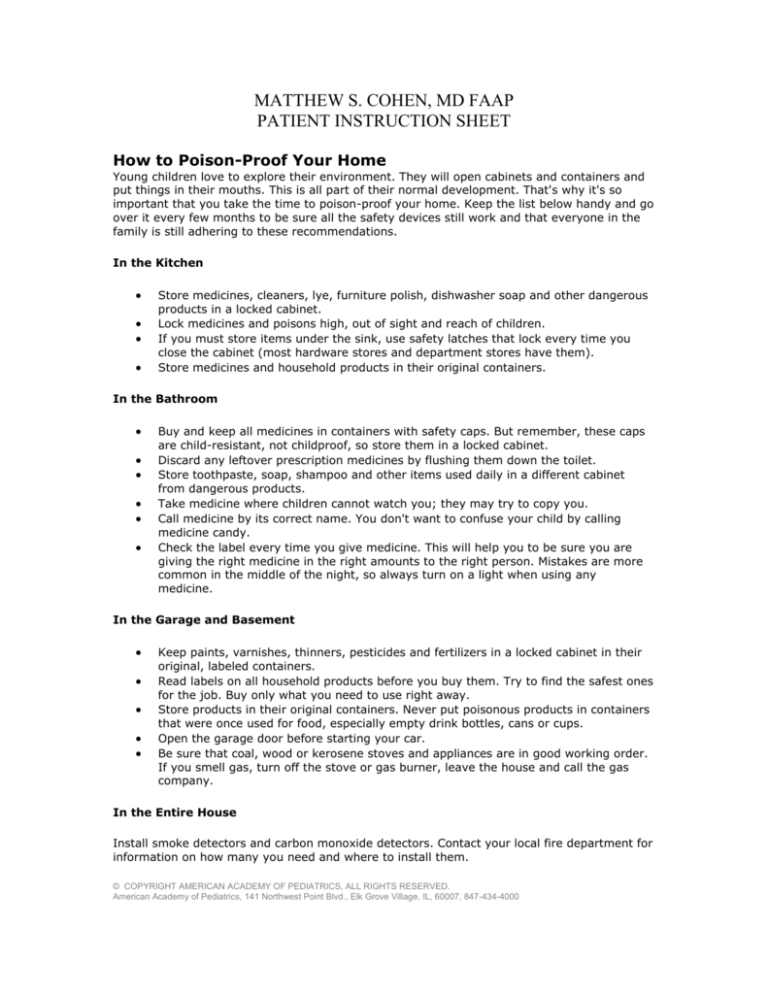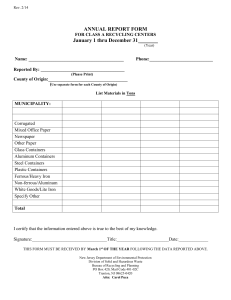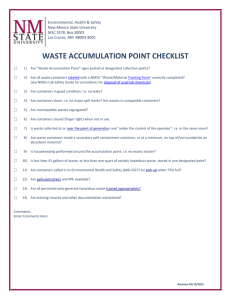
MATTHEW S. COHEN, MD FAAP
PATIENT INSTRUCTION SHEET
How to Poison-Proof Your Home
Young children love to explore their environment. They will open cabinets and containers and
put things in their mouths. This is all part of their normal development. That's why it's so
important that you take the time to poison-proof your home. Keep the list below handy and go
over it every few months to be sure all the safety devices still work and that everyone in the
family is still adhering to these recommendations.
In the Kitchen
Store medicines, cleaners, lye, furniture polish, dishwasher soap and other dangerous
products in a locked cabinet.
Lock medicines and poisons high, out of sight and reach of children.
If you must store items under the sink, use safety latches that lock every time you
close the cabinet (most hardware stores and department stores have them).
Store medicines and household products in their original containers.
In the Bathroom
Buy and keep all medicines in containers with safety caps. But remember, these caps
are child-resistant, not childproof, so store them in a locked cabinet.
Discard any leftover prescription medicines by flushing them down the toilet.
Store toothpaste, soap, shampoo and other items used daily in a different cabinet
from dangerous products.
Take medicine where children cannot watch you; they may try to copy you.
Call medicine by its correct name. You don't want to confuse your child by calling
medicine candy.
Check the label every time you give medicine. This will help you to be sure you are
giving the right medicine in the right amounts to the right person. Mistakes are more
common in the middle of the night, so always turn on a light when using any
medicine.
In the Garage and Basement
Keep paints, varnishes, thinners, pesticides and fertilizers in a locked cabinet in their
original, labeled containers.
Read labels on all household products before you buy them. Try to find the safest ones
for the job. Buy only what you need to use right away.
Store products in their original containers. Never put poisonous products in containers
that were once used for food, especially empty drink bottles, cans or cups.
Open the garage door before starting your car.
Be sure that coal, wood or kerosene stoves and appliances are in good working order.
If you smell gas, turn off the stove or gas burner, leave the house and call the gas
company.
In the Entire House
Install smoke detectors and carbon monoxide detectors. Contact your local fire department for
information on how many you need and where to install them.
© COPYRIGHT AMERICAN ACADEMY OF PEDIATRICS, ALL RIGHTS RESERVED.
American Academy of Pediatrics, 141 Northwest Point Blvd., Elk Grove Village, IL, 60007, 847-434-4000







